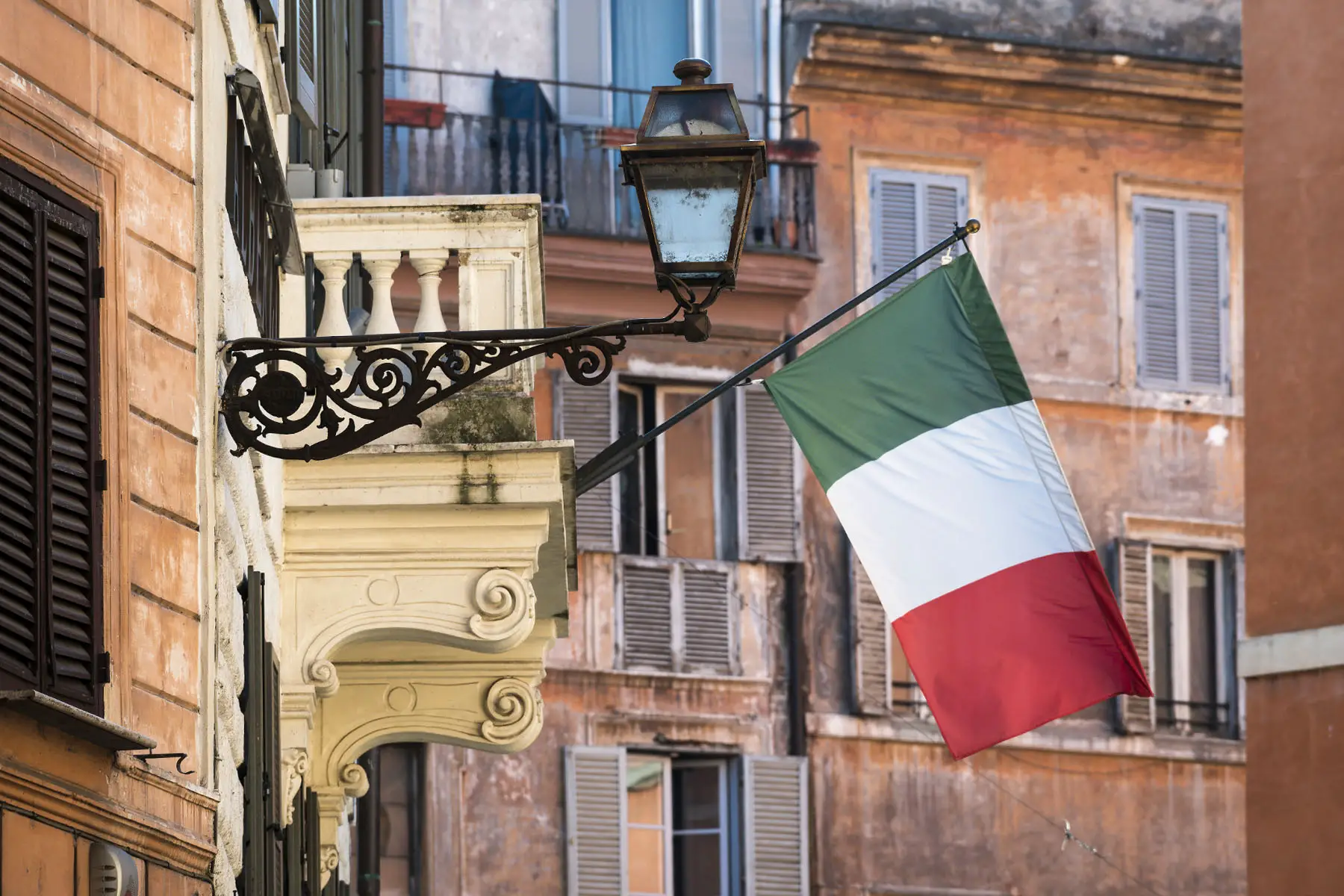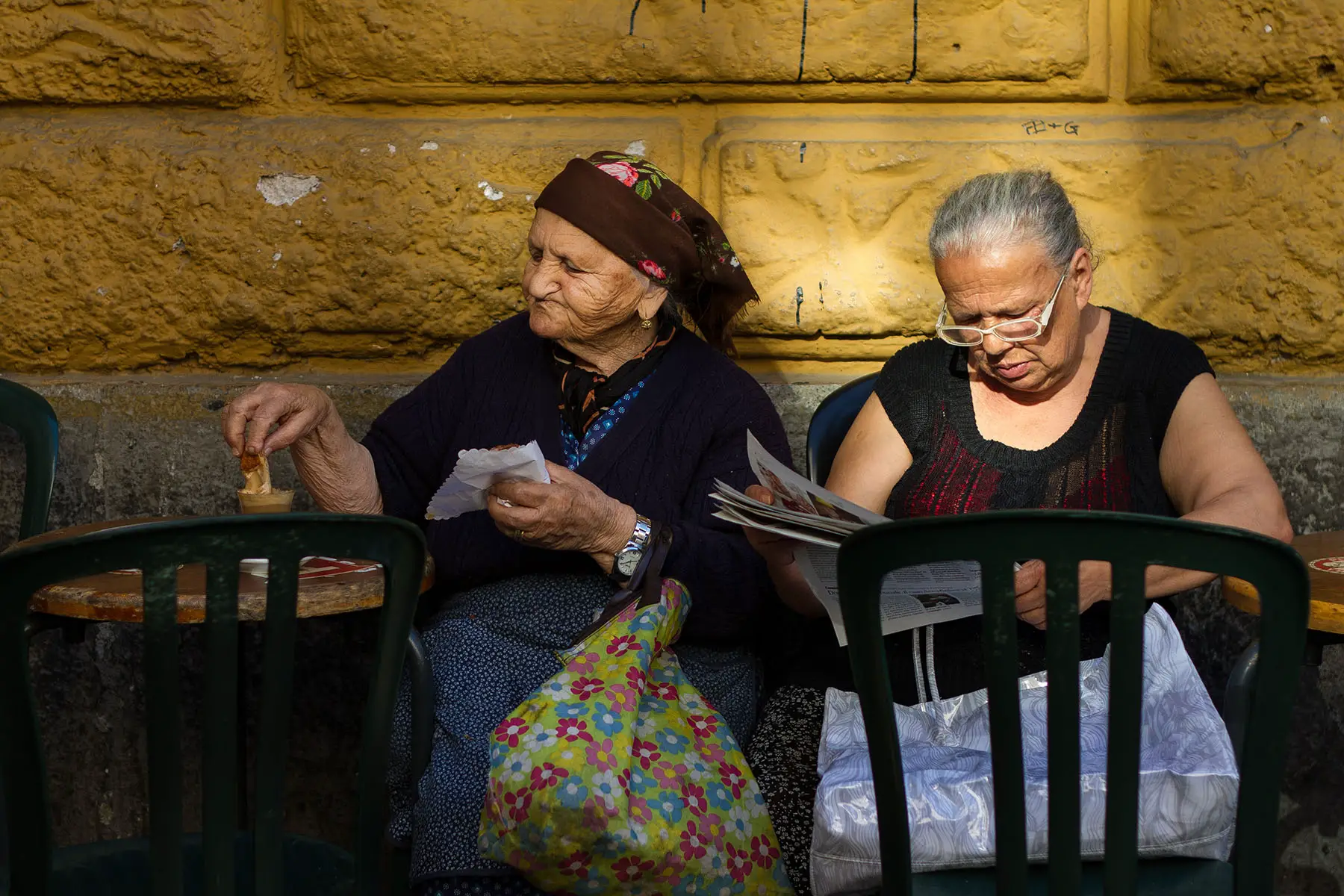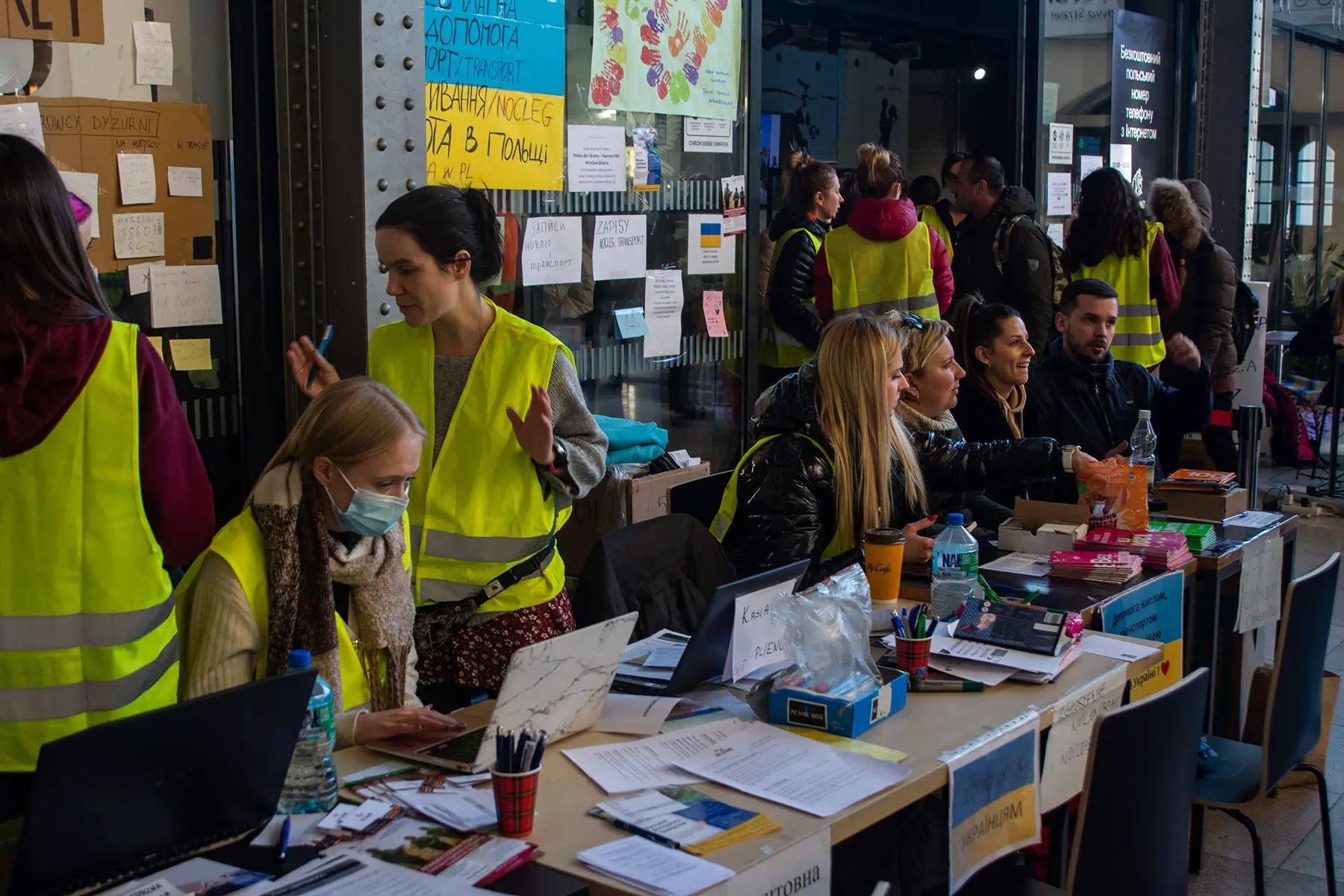Italy is a land of opportunity, and absolutely brimming with amazing food, incredible cultural institutions, and interesting people who’ll make time fly by. Before you know it, you’ve built a life and you’re thinking of staying forever.
Discover the different paths to Italian citizenship by reading the following sections:
- Italy and citizenship
- Citizenship by descent
- Italian citizenship by birth
- Transmitted citizenship
- Naturalization (residence)
- How to apply for Italian citizenship
- Italian citizenship as a refugee
- Exceptions and special cases
- Citizenship test in Italy
- Passports in Italy
- Dual nationality
- Losing or renouncing Italian citizenship
- Citizenship appeals and complaints
- Useful resources
Moving2Italy
When relocating to Italy, get expert help from Moving2Italy on taxes, work permits, and setting up a business. They also provide personalized support for immigration, social security, and residence, helping you navigate your new life abroad. For assistance with fiscal and immigration matters, contact Moving2Italy.
Italy and citizenship
In 2022, Italy had an estimated 54 million Italian citizens, plus an extra 5.8 million Italians living abroad. The largest communities of Italians outside of Italy can be found in Argentina (903,081), Germany (813,650), and Switzerland (648,320).

Although the number of Italians moving abroad is increasing every year, there are also many expats who want to move to Italy and take up citizenship.
At the start of 2022, the country counted around 5.2 million foreign residents and 1.6 million Italian citizens with foreign origins. In 2021, approximately 121,000 internationals were granted citizenship by the Italian Ministry of the Interior (Ministero dell’Interno).
The most common paths to Italian citizenship include:
- Descent (iure sanguinis) – you were born to Italian parents
- Birth (iure soli) applies – you were born on Italian soil
- Transmission (iure communicatio) – your new relative is Italian (i.e., marriage) or your relative is newly Italian (i.e., naturalization)
- Naturalization (iure domicilii) – you are a long-term resident of Italy
Most expats take the route of naturalization (42% of all new citizens in 2021), and only some gain their citizenship through marriage or civil partnership (12%).
Citizenship by descent
There are at least three ways in which you can qualify for citizenship by descent. The easiest way is by having at least one Italian parent, who has registered your birth certificate with the Italian authorities.
If your parents have different nationalities (one Italian and the other non-Italian), and they did not register your birth with the Italian authorities, you can become an Italian citizen by either:
- Having lived in Italy for at least three years
- Being employed in public service by the Italian government for at least five years
- Undertaking military service in the Italian armed forces for at least five years
With this option, you must have stated your wish of becoming a citizen when you turned 18 years old.
You can also get Italian citizenship if you have at least one Italian ancestor. This can be difficult to prove, however, because you must be able to demonstrate a direct connection (i.e., your ancestor did not renounce their citizenship or take on another).

If the link was broken or you do not have the documents to prove it, your citizenship application will be denied. Instead, you can apply for citizenship by naturalization on reduced terms.
Depending on where you apply (e.g., in Italy or abroad), a citizenship by descent application can take years to process.
Former Italian territories
You can also apply for citizenship by descent if your ancestors were Italian nationals who lost their citizenship while they were living in:
- The provinces of Istria, Fiume, and Dalmatia (they must have lived there between 1940–47)
- Zone B of the former Free Treaty of Trieste (they must have lived there until 1977)
Adopted children and adults
Citizenship by descent is also possible for adopted minor children under the age of 18. If at least one of the adoptive parents is Italian, the child will automatically get Italian citizenship. Adopted children also become Italian citizens when their foreign parents acquire citizenship by naturalization.
It is possible to adopt an adult as well (although it isn’t very common). Adopted adults can apply for citizenship after five years of residence.
If the adoption is revoked, the adoptee will retain their Italian citizenship.
Italian citizenship by birth
Being born in Italy does not necessarily grant you Italian citizenship. You only qualify for citizenship by birth if you were born on Italian soil and:
- Your parents are unknown or stateless
- Your parents are foreign, but you have lived in Italy from birth to adulthood. In this case, you must state your wish of becoming an Italian citizen when you are 18 years old
- You cannot ‘inherit’ your parents’ nationality due to a law in their homeland
If you weren’t born in Italy, but you were found there without an adult claiming parental rights, and without a possible way to verify your identity or nationality, you also qualify for citizenship by birth.
Transmitted citizenship
Another way of acquiring Italian citizenship is through transmission.

This path to citizenship is only available in certain situations, such as:
- You are a minor child under the age of 18, and your foreign-born parents acquire Italian citizenship
- Your Italian parent officially recognizes your filiation
- You marry or enter into a civil partnership with an Italian national and can meet specific requirements. These include that you must be married or partnered for at least:
- One year if you live in Italy and have children together
- Two years if you live in Italy and have no children together
- A year and a half if you live abroad and have children together
- Three years if you live abroad and have no children together
When you apply for citizenship because you got married, you must be able to demonstrate a good command of the Italian language (at least B1 level).
You should be aware that you are not eligible for citizenship through marriage if you are separated or have started divorce proceedings.
Naturalization (residence)
As said before, the most common way for internationals to get Italian citizenship is through naturalization or residence. You can take this route to citizenship after:
- Four years – if you are born in a country that belongs to the European Union (EU) or the European Free Trade Association (EFTA – Iceland, Liechtenstein, Norway, and Switzerland)
- Ten years – if you originate from a non-EU/EFTA country (including five years as a permanent resident)
Next to the required years of residence, you must have:
- A clean criminal record in both Italy and your home country
- Sufficient income during the three years preceding your application
- Your personal annual income cannot be less than €8,263.61
- The annual income of family units cannot be less than €11,362.05
- Each dependent child requires another annual €516.46
EU/EFTA nationals must also prove their Italian language skills (at least B1 level). You can get a certificate from one of the many language schools in Italy.
How to apply for Italian citizenship
Those born in Italy to Italian parents usually don’t have to apply. You’ll automatically receive Italian citizenship once the birth is registered by the authorities.

In all other cases, you can file an application at either:
- The Italian embassy or consulate in your home country (if living abroad)
- The local municipality (if living in Italy)
- The citizenship services portal (if you have a SPID number)
You will need to provide documents that support your application, such as:
- Valid passport or ID
- Permanent residence card
- Birth certificate
- Certificate of language skills (at least B1)
- Proof of Italian citizenship of your ascendants
- Proof of your relationship to the ascendants (e.g., marriage certificate or adoption papers)
- Proof of clean criminal record from both the Italian authorities and your home country
- Proof of sufficient income (i.e., tax returns for the three years preceding the application)
- Certificate of statelessness (certificazione della status di apolidia)
The cost of applying for citizenship is €300, although there may be additional costs (e.g., if you have to translate documents or take an Italian language exam). The application usually takes around 6 months to a year to process, but can take up to four years. In some extreme cases of applying abroad, it can take years to get a citizenship appointment with the Italian embassy or consulate.
Italian citizenship as a refugee
Refugees can file an asylum claim with the Italian authorities. Once processed, you will either be assigned a refugee status, be granted protection, or have your application rejected.
Your refugee status comes with a five-year residence permit (Permesso di soggiorno per Asilo Politico). After five years of legally living in Italy, you can apply for fast-tracked citizenship by naturalization.
If you have been granted subsidiary protection, you are also given a five-year residence permit (Permesso di soggiorno per Protezione Sussidiaria). After that, your situation will be reviewed. You can only apply for citizenship after the standard 10 years.
Those who are stateless – in other words, do not have any nationality – can apply for Italian citizenship after five years of residence.
Exceptions and special cases
The Italian authorities can fast-track citizenship applications in exceptional circumstances.

This is only done when the applicant has:
- Rendered eminent services to Italy, or when there is an exceptional interest of the Italian State
- Done at least five years of military service in Italy
You cannot apply for fast-tracked citizenship; other entities must do it for you.
There is also currently a proposal to allow foreign children to apply for Italian citizenship after five years of schooling in Italy (iure culturae). To qualify, they must have lived in Italy since before the age of 12.
Citizenship test in Italy
Italy doesn’t have an exam that you have to pass in order to obtain citizenship. However, you will need to demonstrate knowledge and understanding of Italian (at least B1 level) by providing a certificate (Certificazione Lingua Italiana di Qualità – CLIQ). You can get different language certificates through Italian language school, such as:
- Certificazione di Italiano come Lingua Straniera (CILS)
- Certificato di Conoscenza della Lingua Italiana (CELI)
- Progetto Lingua Italiana Dante Alighieri (PLIDA)
The language certificate is not necessary for permanent residents or those who have signed the country’s Integration Agreement (Accordo di integrazione).
Passports in Italy
Once you become a citizen, you can apply for an Italian passport. You can do so at any police office (questure) in Italy or an Italian embassy or consulate worldwide.
The cost of a standard passport is currently €116.
Dual nationality
Italy allows dual nationality, which means that you don’t have to renounce your existing citizenship when you take on the Italian one. There are now no limits on the number of nationalities you might have.

Some countries do not permit dual citizenship (e.g., the Netherlands). This means that you’ll have to renounce your existing nationality when you apply for Italian citizenship. Make sure to check with your country’s embassy or consulate regarding the rules and procedures before you start the procedure.
Losing or renouncing Italian citizenship
Your citizenship can be revoked if you:
- Voluntarily enlist in the armed forces of a foreign country, or accept a government post with a foreign government
- Serve a foreign nation, hold a government post, or acquire citizenship of that foreign state, during a time of war
- Have citizenship by adoption and lose your adoption status through a fault of your own
The latter is only possible when you have dual citizenship.
You can also renounce your Italian nationality, as long as you have backup citizenship. Reasons for renouncing your nationality can be, for example, acquiring citizenship in a country that doesn’t allow dual nationalities.
If you have voluntarily renounced your Italian citizenship and you change your mind, you can regain it by declaring your intent to an Italian embassy or consulate and moving back to Italy within a year of the declaration.
Citizenship appeals and complaints
If your application has been denied or your citizenship has been revoked, you can file an appeal or make a complaint with the Department of Civil Liberties and Immigration (Dipartimento per le Libertà civili e l’Immigrazione). This department is part of the Ministry of Interior.
If you are unhappy with the outcome of an appeal, you can take the case to court (Tribunali Amministrativi Regionali – TAR). However, this can be expensive as you will usually have to pay for fees such as legal representation.
Useful resources
- Ministry of the Interior (Ministero dell’Interno) – official government website of the ministry responsible for visas, immigration, and Italian citizenship
- Ministry of Foreign Affairs and International Cooperation (Ministero degli affari esteri e della cooperazione internazionale – MAECI) – official government website with information on citizenship in Italy








